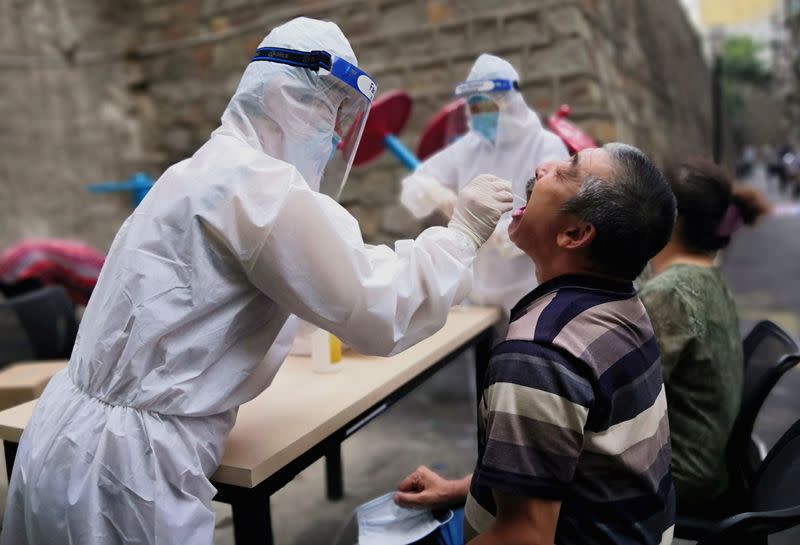China's Urumqi imposes COVID-19 restrictions on people coming in and out of the city

BEIJING (Reuters) - Authorities imposed travel restictions on Thursday on people coming in and out of Urumqi, the capital of China's western Xinjiang region, seeking to contain an outbreak of the coronavirus there.
The city has been at the centre of the new wave of infections in mainland China, accounting for 96 of 105 confirmed COVID-19 cases reported on July 29.
Non-residents seeking to leave the city will have to test negative in both nucleic acid and antibody tests before they can leave if they have been in the city for 14 days or more, Vice Mayor Song Yajun said during a daily briefing. He added that residents should not leave Urumqi unless necessary.
Urumqi will also mandate 14-day quarantine for people arriving in the city from high-risk COVID-19 areas, Song said. Others entering the city will need to show proof of a negative test within the past seven days, among other requirements, which vary depending on where they are coming from.
The number of new cases in mainland China is still well below the peaks seen in February, but the resurgence underscores the challenge in stamping out the disease.
Also on Thursday, China ordered local authorities to carry out regular coronavirus tests at wholesale markets. In June, there was a cluster of infections centered around a major wholesale market in the capital, Beijing.
(Reporting by Roxanne Liu and Ryan Woo; Writing by Se Young Lee; Editing by Edmund Blair and Frances Kerry)


